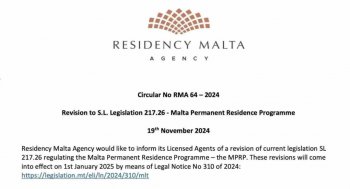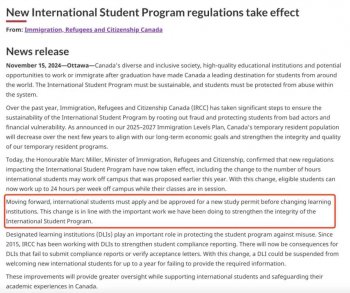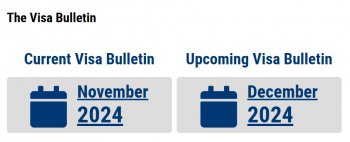【兆龍課堂】Klasko律師關(guān)于美國(guó)投資移民EB-5再授權(quán)提案的注解:資金來源和路徑
更新時(shí)間:2015-06-15瀏覽:

On June 3, 2015, Senators Charles Grassleyand Patrick Leahy introduced a bi-partisan bill to extend and amend theImmigrant Investor Program. As part of a multi-series examination of the bill,below is detailed analysis of how the bill will change key aspects of theprogram as it relates to source and path of funds.
2015年6月3日,參議員CharlesGrassley和Patrick Leahy提出了一項(xiàng)旨在延長(zhǎng)和改善美國(guó)投資移民計(jì)劃的兩黨聯(lián)合提案。作為對(duì)該提案系列研究的一部分,以下是對(duì)該提案將會(huì)給EB-5計(jì)劃的重要方面帶來的變化的詳細(xì)分析,因?yàn)樵撎岚干婕傲擞嘘P(guān)資金來源和路徑的問題。
1. AdministrativeFees Must Be Sourced
1. 行政管理費(fèi)的來源必須予以追溯
Current: In a 2012 Stakeholder’s meeting, Alejandro Mayorkas, then directorof USCIS, confirmed that the administrative fees must be sourced. In itsFebruary 2015 Stakeholder’s meeting, USCIS indicated that administrative feesdo not need to be sourced as USCIS did not have a “legal basis for requiringthe . . . administrative fee . . . [to have] a lawful source.”
現(xiàn)狀:在2012年舉行的一次利益相關(guān)者會(huì)議中,時(shí)任美國(guó)移民局局長(zhǎng)Alejandro Mayorkas明確表示行政管理費(fèi)的來源必須予以追溯。但在2015年2月舉行的利益相關(guān)者會(huì)議中,美國(guó)移民局表示行政管理費(fèi)的來源并不需要追溯,原因在于美國(guó)移民局并沒有“要求···行政管理費(fèi)···[擁有]合法來源的法律依據(jù)”。
ProposedChanges: Under the proposed legislation, USCIS willhave a “legal basis” for requiring investors to source the administrative fee.Proposed INA 203.5(b)(5)(L) states in pertinent part that the investor mustshow that “any funds used to pay administrative costs and fees associated withthe alien’s investment were obtained from a lawful source and through lawfulmeans.”
提案變化:在提案下,美國(guó)移民局將擁有要求投資人追溯行政管理費(fèi)來源的“法律依據(jù)”。根據(jù)提案的《移民與國(guó)籍法》第203.5(b)(5)(L)款相關(guān)部分的規(guī)定,投資人必須證明“任何用于支付行政管理費(fèi)用和外國(guó)人投資相關(guān)費(fèi)用的資金是通過合法來源和合法途徑所獲得的”。
As currentlywritten, the proposed changes leave open the possibility that investors mayhave to source legal and filing fees in addition to the investment andadministrative fees.
就目前來看,這些提案的變化可能意味著投資人除了需要證明投資款和行政管理費(fèi)的來源以外,還需要證明律師費(fèi)和申請(qǐng)費(fèi)的來源。
2. TaxReturns: 7 years of tax returns prior to I-526 filing tax returns mandatory forinvestors
2. 納稅申報(bào)單:投資人必須提供I-526申請(qǐng)遞交前7年的納稅申報(bào)單
Current: Filing tax returns as part of I-526 documentation is not mandatoryas tax returns are included as one of several options to document source offunds, as supported by the use of a disjunctive “or” in the regulations.
現(xiàn)狀:投資人并不一定要在I-526申請(qǐng)的遞交文件材料中包含納稅申報(bào)單,因?yàn)榧{稅申報(bào)單僅僅是提供資金來源文件時(shí)諸多選擇中的一個(gè)。根據(jù)相關(guān)法規(guī)中所使用的反義連接詞“或”,這一主張可以得到支持。
8 CFR204.6(j)(3) states in pertinent part:
《美國(guó)聯(lián)邦法規(guī)》第8篇第204.6(j)(3)款的相關(guān)部分規(guī)定:
To show that thepetitioner has invested, or is actively in the process of investing, capitalobtained through lawful means, the petition must be accompanied by:
為了證明申請(qǐng)人已經(jīng)投資了通過合法途徑獲得的資金(或處在積極投資的過程中),所遞交的申請(qǐng)文件中必須包含:
i. Foreign businessregistration records;
i. 外國(guó)企業(yè)注冊(cè)記錄;
ii. Corporate, partnershipand personal tax returns of any kind filed within 5 years;
ii. 5年內(nèi)所備案的任何法人、合伙企業(yè)和個(gè)人的納稅申報(bào)單;
iii. Evidence identifyingany other source(s) of capital; OR
iii. 顯示任何其他資金來源的證據(jù);或
iv. Certified copies of judgments or evidenceof all pending governmental civil or criminal actions.
iv. 所有未決的政府民事或刑事訴訟的核證判決書或證明。
ProposedChanges: Under the proposed bill, the followinglanguage, reproduced in pertinent part, would be added under INA 203(b)(5)(L):
提案變化:在提案下,以下規(guī)定將被加到《移民與國(guó)籍法》第203(b)(5)(L)款下的相關(guān)部分中:
i. The Secretary ofHomeland Security shall require, as applicable, that an alien entrepreneurpetition contain:
i. 國(guó)土安全部部長(zhǎng)應(yīng)在適當(dāng)情況下要求外國(guó)企業(yè)家在申請(qǐng)中包含以下文件:
I. Business andtax including:
I. 企業(yè)和納稅文件,包括:
a. Foreign businessregistration records;
a. 外國(guó)企業(yè)注冊(cè)記錄;
b. Corporate, partnershipand personal tax returns of any kind filed within 7 years with any tax jurisdiction;
b. 7年內(nèi)在任何稅收管轄區(qū)域所備案的任何法人、合伙企業(yè)和個(gè)人的納稅申報(bào)單;
c. Evidence identifyingany other source(s) of capital; AND
c. 顯示任何其他資金來源的證據(jù);或
II. Certifiedcopies of judgments or evidence of all pending governmental civil or criminalactions.
II. 所有未決的政府民事或刑事訴訟的核證判決書或證明。
Accordingly thenew proposed changes to the INA appear to make mandatory the filing of 7 yearsof corporate, partnership, and personal tax returns for all investors.
與此同時(shí),針對(duì)《移民與國(guó)籍法》新提案的變化可能會(huì)要求所有投資人必須提供過往7年的法人、合伙企業(yè)和個(gè)人的納稅申報(bào)單。
3. Identityof Intermediaries
3. 中間人的身份
Current: Currently, neither the regulations nor the INA requires anyidentity documents of intermediaries used by the investor in the exchange offunds into USD and transfer of USD funds into the U.S.
現(xiàn)狀:目前,無論是相關(guān)法規(guī)還是《移民與國(guó)籍法》都未要求投資人提供任何有關(guān)兌換美元和向美國(guó)轉(zhuǎn)賬美元資金過程中涉及的中間人的身份證明文件。
ProposedChanges: Investors will have to provide theidentity documents of all intermediaries used in the exchange and transfer ofthe investment funds as well as administrative fees and costs.
提案變化:投資人必須提供所有貨幣兌換以及投資款、行政管理費(fèi)和其它費(fèi)用轉(zhuǎn)賬過程中涉及的所有中間人的身份證明文件。
4. Restrictions on Gifts: Must be gifted by aclose family member and giftor may be required to provide tax returns
4. 對(duì)于贈(zèng)予的限制:投資人只能接受直系家庭成員的贈(zèng)予,且贈(zèng)與人可能需要提供納稅申報(bào)單。
Current: Currently, neither the regulations nor the INA place anyrestrictions on gifted funds as the EB-5 investment. Instead, under USCISpolicy, investors simply had to document the source of the gifted funds andprovide an affidavit confirming the gifting of the investment funds with noobligation or expectation to repay.
現(xiàn)狀:目前,無論是相關(guān)法規(guī)還是《移民與國(guó)籍法》都未對(duì)將贈(zèng)予資金作為EB-5投資款作出任何限制。事實(shí)上,根據(jù)美國(guó)移民局的政策規(guī)定,投資人只需要提供證明贈(zèng)予資金來源的文件以及一份證明投資款的贈(zèng)予不附帶償還義務(wù)或期望的書面陳述即可。
ProposedChanges: An investor may only use gifted funds forEB-5 investment if the funds are gifted by a spouse, parent, child, sibling, orgrandparent. Further, the gift must be made in “good faith” and not used tocircumvent any limitations on permissible sources of income.
提案變化:投資人可能只能使用配偶、父母、子女、兄弟姊妹或祖父母贈(zèng)予的資金作為EB-5投資款。另外,贈(zèng)予行為必須本著誠(chéng)信原則作出,不可規(guī)避任何對(duì)于準(zhǔn)許收入來源的限制。
Additionally, ifa “significant portion” of the EB-5 funds are gifted, the giftor must alsoprovide 7 years of tax returns prior to the I-526 filing and documentation ofany monetary judgments against the giftor. The amount of funds that wouldconstitute a “significant portion” of EB-5 funds is not defined.
此外,如果EB-5資金中贈(zèng)予資金占據(jù)“很大部分”,贈(zèng)與人就必須提供I-526申請(qǐng)遞交前7年的納稅申報(bào)單以及任何針對(duì)贈(zèng)與人的金錢裁判額的相關(guān)文件。但是,提案中并沒有明確所謂“很大部分”EB-5資金的具體金額。
5. Restrictions on Loans: Must be secured byassets owned by the investor and lender must be a “reputable” bank or licensedlending institution
5. 對(duì)于貸款的限制:貸款必須得到投資人所擁有資產(chǎn)的擔(dān)保,且借款人必須是“享有信譽(yù)”的銀行或其它得到許可的借貸機(jī)構(gòu)。
Current: Based on 8 CFR 204.6(e) and USCIS’ May 30, 2013 EB-5 PolicyMemorandum, investors have the option of depositing cash, equipment, property,or indebtedness (a promissory note) as capital; the regulation only requires aninvestor who uses indebtedness as capital to secure the capital on assets ownedby the investor.
現(xiàn)狀:根據(jù)《美國(guó)聯(lián)邦法規(guī)》第8篇第204.6(e)款以及美國(guó)移民局2013年5月30日發(fā)布的EB-5政策備忘錄,投資人可以選擇將交由他方保管的現(xiàn)金、設(shè)備、房產(chǎn)或負(fù)債(本票形式)作為資本;而相關(guān)法規(guī)僅要求使用負(fù)債作為資本的投資人提供其所擁有資產(chǎn)的擔(dān)保即可。
Prior toDecember 2014, USCIS was routinely approving cases wherein the investorobtained a home equity loan using a third party’s property as collateral. Inmost cases, the third party was the investor’s minor child. Beginning in 2014,with no statutory or regulatory authority and no prior notice to stakeholdersof a change in policy, USCIS began denying such cases. As the basis for thedenials, USCIS argued that such loans were not appropriate for EB-5 investmentunder the regulations as 8 CFR 204.6(e) required indebtedness to be secured byassets owned by the alien entrepreneur.
在2014年12月前,美國(guó)移民局對(duì)于投資人使用第三方房產(chǎn)作為抵押物獲得房屋抵押貸款的案例一般都會(huì)予以批準(zhǔn)。而在大多數(shù)案例中,第三方往往都是投資人的未成年子女。但自2014年起,在沒有獲得任何法定或監(jiān)管授權(quán)且沒有事先告知利益相關(guān)者政策變化的情況下,美國(guó)移民局開始轉(zhuǎn)而否決這些案例。至于否決的依據(jù),美國(guó)移民局認(rèn)為這樣的貸款根據(jù)相關(guān)法規(guī)是不能作為EB-5投資款使用的,因?yàn)楦鶕?jù)《美國(guó)聯(lián)邦法規(guī)》第8篇第204.6(e)款的規(guī)定,負(fù)債必須得到外國(guó)企業(yè)家所擁有資產(chǎn)的擔(dān)保。
Categorizationof capital in such an instance as “indebtedness” is incorrect. The investor isnot investing indebtedness as capital as there is no debt arrangement betweenthe investor and the NCE; that is, no promissory note exists between them.Instead, the investor obtains a home-equity loan, secured by lawfully obtainedand owned assets, and then uses the cash proceeds from the loan as the EB-5investment. Thus, under 8 CFR 204.6(e) the investor is investing “cash” ascapital; the regulations do not require the underlying home-equity loan to besecured by any personal assets.
在上述案例中,將資本歸類為“負(fù)債”是不正確的。投資人并沒有將負(fù)債作為資本進(jìn)行投資,因?yàn)橥顿Y人與新商業(yè)企業(yè)之間根本不存在債務(wù)約定,也就是說,兩者之間并不存在任何本票承諾。而事實(shí)上,投資人是以其合法獲得且擁有的資產(chǎn)提供擔(dān)保獲得房屋抵押貸款,并使用貸款資金作為EB-5投資款的。因此,根據(jù)《美國(guó)聯(lián)邦法規(guī)》第8篇第204.6(e)款的規(guī)定,投資人是將“現(xiàn)金”作為資本進(jìn)行投資,而相關(guān)法規(guī)并未要求最根本的房屋抵押貸款得到任何個(gè)人資產(chǎn)的擔(dān)保。
ProposedChanges: Under the proposed legislation, “[c]apitalthat is derived from indebtedness can only be counted toward the minimumcapital investment requirement only if such capital is (i) secured by assetsowned by the investor.” Additionally, the lender must be either a “reputable”bank or licensed lending institution.
提案變化:在提案下,“源于負(fù)債的資本只有在(i)獲得投資人所擁有資產(chǎn)擔(dān)保的情況下,才能被視為滿足了資本投資的最低要求。”此外,借款人必須是一家“享有信譽(yù)”的銀行或得到許可的借貸機(jī)構(gòu)。
First, itappears that the legislation is allowing for a scenario wherein USCIS has thepower to determine the reputability of a bank after I-526 filing, when theinvestor has already obtained the loan and invested the capital.
首先,提案可能會(huì)使美國(guó)移民局有權(quán)在I-526申請(qǐng)遞交后,即投資人已經(jīng)獲得貸款并作出投資之后,判定銀行的信譽(yù)。
Additionally, ifthis legislation passes, it appears that investors would no longer be able touse a company equity loan as the source of their funds unless the companyissuing the loan happens to be a licensed lending institution.
其次,如果該法規(guī)通過,投資人可能無法再使用公司股權(quán)借款作為資金來源,除非發(fā)放借款的公司正巧是得到許可的借貸機(jī)構(gòu)。
Finally, ifpassed, the new law may provide USCIS with statutory authority to deny caseswhere the investor uses loan proceeds from a home equity loan using a thirdparty’s property as collateral.
最后,如果該法規(guī)通過,新法將給予美國(guó)移民局相應(yīng)的法定權(quán)力,否決那些投資者使用第三方房產(chǎn)作為抵押物獲得房屋抵押貸款并將該貸款資金作為投資款的案例。
6. Changesto Investment Amount
6. 投資款金額的變化
Current: Investment amount is 1 million or $500,000 in a TEA.
現(xiàn)狀:投資款金額為100萬(wàn)美元,TEA地區(qū)為50萬(wàn)美元。
Proposed: Investment amount is 1.2 million or $800,000 in a TEA. Investmentamounts are subject to increase every 5 years (starting January 1, 2020) by theamount of the cumulative percentage change (CPU).
提案變化:投資款金額為120萬(wàn)美元,TEA地區(qū)為80萬(wàn)美元。投資款金額將根據(jù)累積變化率(CPU)的總額每5年(自2020年1月1日起)增長(zhǎng)一次。
版權(quán)聲明:本文由兆龍移民獨(dú)家精選,未經(jīng)授權(quán),禁止一切同行與媒體轉(zhuǎn)載。歡迎個(gè)人轉(zhuǎn)發(fā)分享至朋友圈。
標(biāo)簽: 美國(guó)移民 美國(guó)投資移民 投資移民美國(guó)
上一篇:【項(xiàng)目快訊】紐約曼哈頓新時(shí)代廣場(chǎng)項(xiàng)目最新進(jìn)展:地基已經(jīng)基本建設(shè)完成 下一篇:【兆龍課堂】Eugene律師關(guān)于美國(guó)移民局新政策以贈(zèng)予方式證明合法資金來源的總結(jié)














